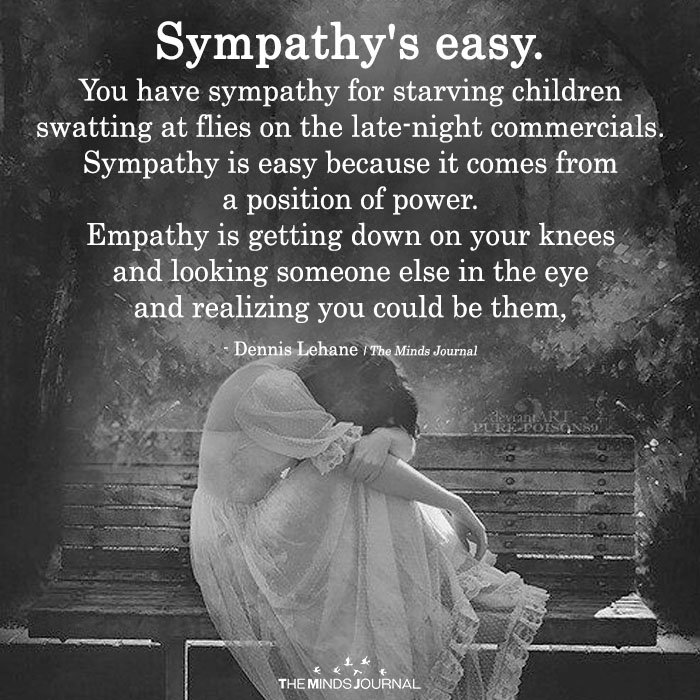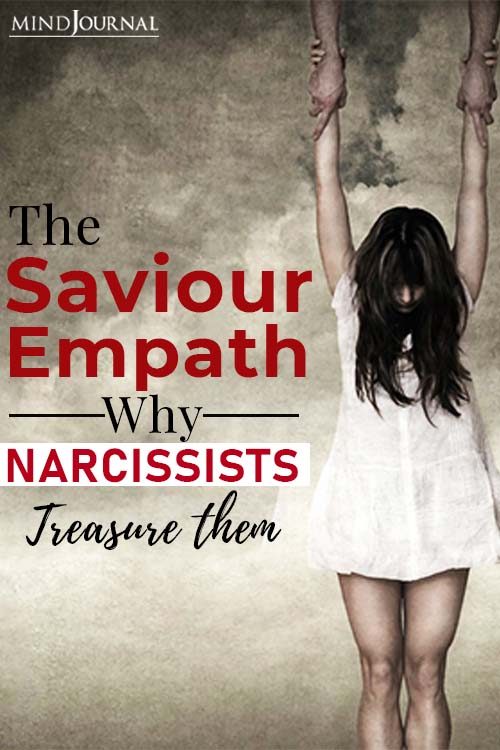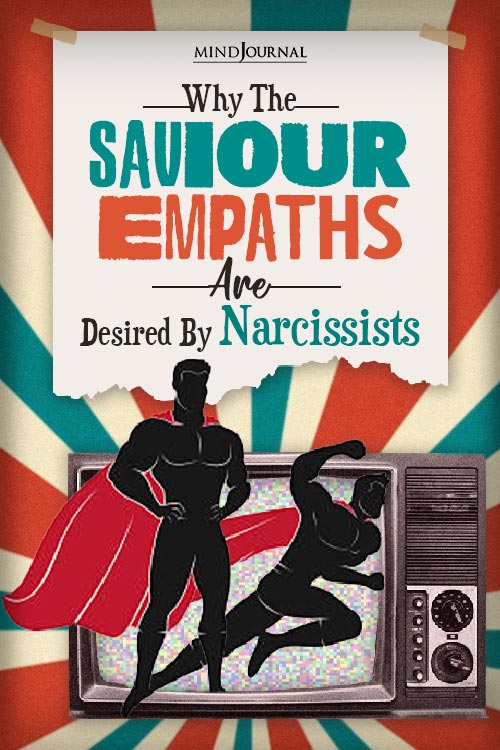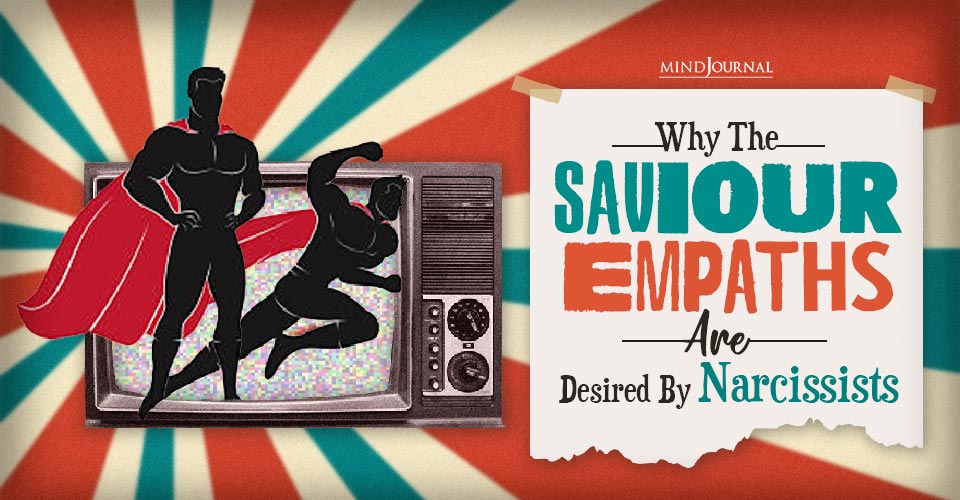Empaths are always the givers. The Saviour Empaths, as the name suggests, feel the tremendous need to save others from their problems. And they do so without wanting anything in return. That’s why narcissists always get attracted to them as their conditional attachment always gets fulfilled by this type of empath.
There are four schools of empath (Co-Dependent, Standard, Super, and Contagion). There are many cadres of empath which layer on to those schools. These cadres include the Carrier, the Magnet, and the Geyser, about which I have written previously. A further cadre is that of the Saviour Empath.
The Saviour Empath

The Saviour Empath’s mission is to heal and to save, to ensure that good prevails. They are the archetypal believer in the idea that there is some good in everybody. With regard to our kind, the Saviour Empath does not consider that we are intrinsical ‘evil’ or ‘bad’.
They prefer to adopt the view that there is well locked away inside of us and that it just has to be discovered, unlocked, and set free. This notion of course and the desire to address this apparent goodness is a very strong binder that enables us to keep a hold on the Saviour Empath. Indeed, there are those of our kind who will play on this concept and this is addressed below.
Read 15 Ways To Stay Grounded And Protected As An Empath
The Saviour Empath feels an overriding need to save the world. They wish to right the wrongs, heal the sick, tend to the injured, and ensure that injustices are overturned. It is this desire which is at the very heart of the Saviour Empath.
The Saviour Empath is often someone who subscribes to a belief system (whether it is organized religion, karma, paganism, or similar) although the absence of such a belief does not discount the person as being a Saviour Empath, a reliance on a belief system is a hallmark of the Saviour Empath.
How does this manifest with regard to each school of empath?
1. Standard Empath
The Saviour Standard Empath regards it as imperative that he or she comes to the aid of people. They will donate to charity, help out voluntary organizations, and are giving of their time. With regard to the narcissist, this manifests as adopting a sympathetic and compassionate approach to the unusual behaviors (when the empath is not aware they are ensnared by a narcissist) of the narcissist.
Accordingly, they regard the narcissist as a ‘good’ person (supported by the narcissist’s illusory behavior during the golden period), and therefore when devaluation occurs they will ascribe the behavior to arising from a third party event rather than seeing it as the behavior of the narcissist at work.
Read Do Narcissists Have Selective Empathy?
The Standard Empath wants to assist the narcissist and does so by trying to understand and offer solutions linked to the aberrant behavior that is being witnessed. The Saviour Standard Empath whilst wanting to save the narcissist from whatever terrible third party event or influence that is causing the behavior (for example, is the narcissist struggling at work, is he stressed, has he got problems with money or drink?).
The Saviour Standard Empath will put themselves in the firing line when trying to assist, but they do not tend to regard the problem as much to do with them but rather another factor that they want to tackle and overcome.
2. Super Empath
The Saviour Super Empath is akin to a caped crusader who fires into action whenever he or she witnesses injustice. They cannot help but interfere when really it is not their business (this is the narcissistic trait of selfishness coming to the fore momentarily).
The Saviour Super Empath will not turn a blind eye to someone in trouble, they will help the injured person and then look to tackle the perpetrator (or at least bring them to account through formal channels).
Read What Is Your Level of Empathy?
Thus if the Saviour Super Empath sees someone being attacked, they will help the victim, look to fight off the attacker, and/or chase them down, either themselves or enlisting help. They cannot let any kind of injustice go unaddressed.
The Saviour Super Empath has a very strong moral compass and therefore when they see something that is wrong, it very much boils their piss so they spring into action. Whilst they always look to help people, what really matters to the Saviour Super Empath is bringing people to account for their actions.
If they see a person cutting into a queue (line) they will upbraid the offender. If they witness a person stealing, they will look to stop them or report them. The Saviour Super Empath is a firm believer in the need for good to prevail, whether this is in a situation or in a person.
With regard to the narcissist that a Saviour Super Empath is embroiled with, the Saviour Super Empath knows that this person has a kernel of goodness and if they only tried to embrace it, let it shine, etc then such a difference will appear.
They believe the narcissist has it inside of them to make adjustments, amend their behavior, and harness the intrinsic goodness inside of them. The Saviour Super Empath knows that they are a force for good and they believe that the narcissist can do the same.
The Saviour Super Empath recognizes that they themselves are good people but that they have some degree of edge to them (their narcissistic traits appearing from time to time) and they often regard the narcissist in the same light – a person who has the edge but is intrinsically good – and this fools the Saviour Super Empath into wanting to assist and save the narcissist.
Read 11 Lessons I Learned From Living With A Narcissist
3. The Co-Dependent
The Co-Dependent who is of the Saviour Cadre finds the world to be a terrible place and wishes to administer succor to the downtrodden, to assist the hurt, and to heal the wounds of the injured. They are less concerned about bringing the offender to justice and more about attending to the people who are left cowering and broken in the wake of oppression and violence.
The Saviour Co-Dependent is a person who is extremely caring and compassionate – the type of person who would join Medicins Sans Frontieres and arrive at the scene of a humanitarian disaster would work themselves into the ground to try and ease the suffering of each and every person even though it is an impossible task.
They are often overwhelmed by the cruelty of the world and despair at its evil ways, but this will not stop them from trying to save each and every person who is in need of help. This applies to the way they engage with the narcissist.
The Saviour Co-Dependent (“SCD”) knows and is absolutely convinced that the narcissist is at heart a good person and with the right application of guidance, support, compassion, and tolerance the narcissist will change, will improve, and let that goodness shine.
Read 13 Signs You Are A Psychic Empath
The SCD will not give up on the narcissist, even to personal cost to themselves. They know that redemption is just around the corner, that improvement is on the horizon and they will, with a zeal bordering on delusion, grasp at any sign of improvement or alteration in the narcissist’s behavior as evidence that their faith has not proven incorrect.
The SCD will flagellate themselves in the pursuit of trying to help and heal the narcissist, their emotional thinking and innate desire to do good, plus their own need to achieve validation through their giving of themselves means he or she will continue to try to achieve the impossible.
They will not wish to give up, they will see glimmers of hope, slivers of optimism, and fragments of possibility in order to achieve their aim of saving the narcissist.
4. The Contagion

The Saviour Contagion Empath (“SCE”) will manifest their desire to assist as a consequence of the severe impact felt by them of the negative energy, suffering, and misery that accompanies the human condition. The desire to save and resolve, to eradicate the diseased, and bring about the healing is different from that of the other schools of the empath.
The SCE needs to achieve this in order to secure balance, which is their primary aim. By redressing the bad, through their saving good works then the balance is restored and the polluting impact upon them of the negative energy which they feel – the manifestation of the woe, misery, and hurt that others feel – is removed and no longer (albeit temporarily) ceases to be a burden upon them.
With regard to the narcissist, the removal of the dark energy surrounding and flowing from the narcissist’s behaviors has a considerable impact on the finely-tuned SCE.
In order to alleviate their own pain, in order to prevent themselves from being consumed by the darkness which they acutely feel, the SCE seeks to save the narcissist from their dark self. They similarly wish to achieve balance with their own personal narcissist or narcissists.
How are these various schools of Saviour Empath regarded by narcissists?
As you might expect, the SE is naturally desired by narcissists for their empathic traits, class, and special traits too. Accordingly, no narcissist will ever shy away from the ensnaring of the SE. There are certain schools and cadres of narcissists however that desire the SE in particular.
Victim Narcissists desire the Saviour Empath owing to their need to be mothered, looked after, and saved from their various ailments (real or imagined). The SE’s desire to bring about healing and resolution is savored by this cadre of narcissists.
Lesser Narcissists will not turn away a Saviour Empath, but they are not favored (unless the Lesser is of the Victim Cadre) since the Lesser has no truck with the idea of being healed or saved. From what? Will be the mocking response as their complete lack of self-awareness means that they have no comprehension or need to be saved in that manner.
Mid Range Narcissists treasure Saviour Empaths because of the fact that some Mid Range Narcissists like to play the ‘troubled soul’ or ‘personal demons’ approach.
Whilst unaware of what they are, their awareness that there is something not quite right, coupled with their passive behaviors and need for attention, means that the Mid Range Narcissist truly sees the Saviour Empath as the one who will save him from himself, even though this is just part of the manipulation to keep the Saviour Empath hooked.
Read A Mid Range Narcissist’s Manipulation Tactic: “But I can change”
The Mid Range will revel in becoming the pet project for the Saviour Empath and will instinctively play along by tossing a bone of apparent awareness or improvement in order to maintain the hoped for glorious redemption that the Saviour Empath craves.
The Greater Narcissist is likely to prefer other cadres but again is not going to kick the Saviour Empath out of bed for eating crisps. The Greater may find tormenting the Saviour Empath a delightful machination by increasing the visibility of their dark side so that the Saviour Empath sees a challenge that has to be surmounted.
Of course, the Saviour Empath is blind to the fact that the Greater cannot be healed or saved, but that will not stop the Saviour Empath from trying time and time again.
Written by: HG Tudor Originally appeared on: Narcsite.com Republished with permission











Leave a Reply
You must be logged in to post a comment.